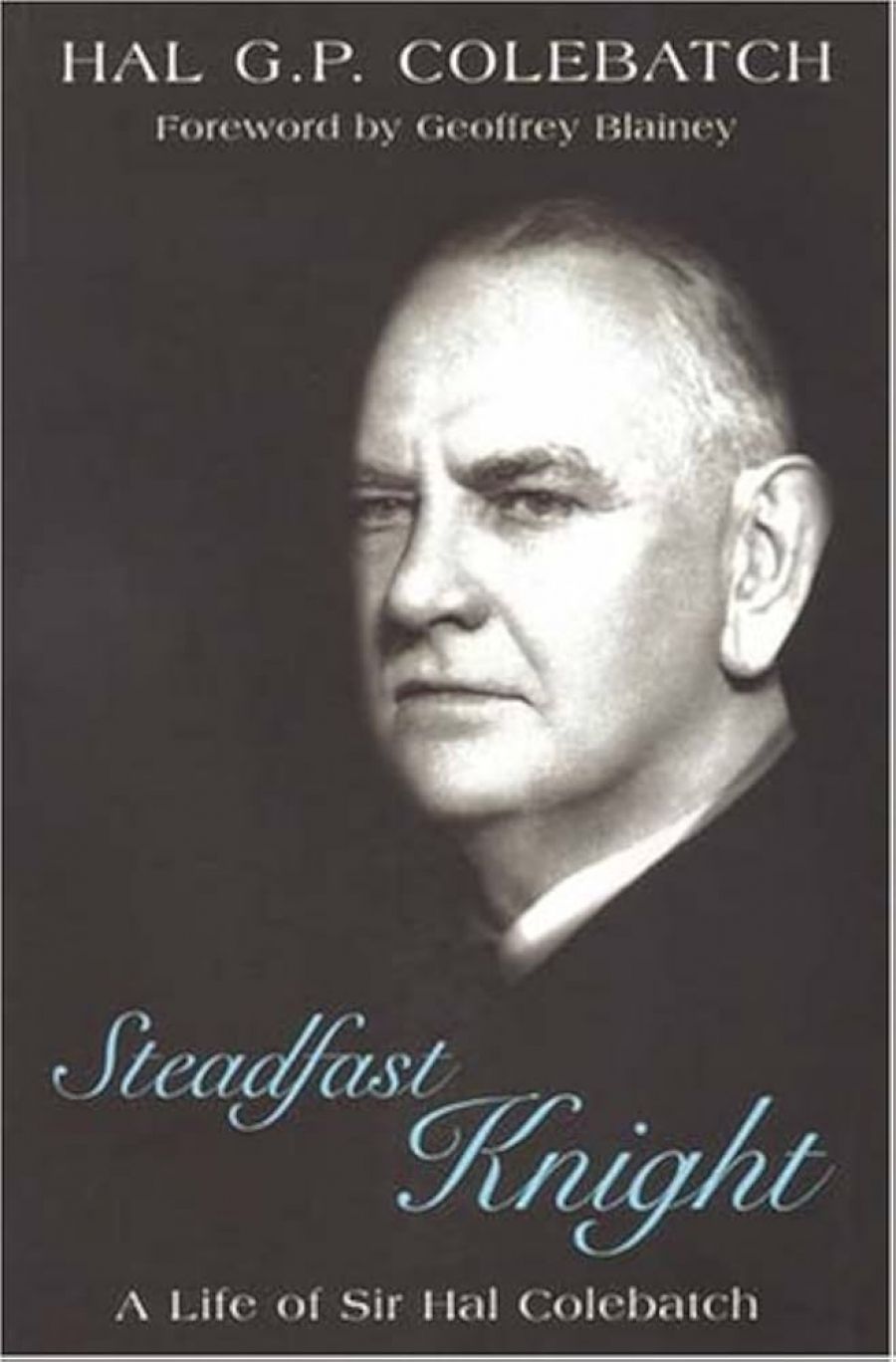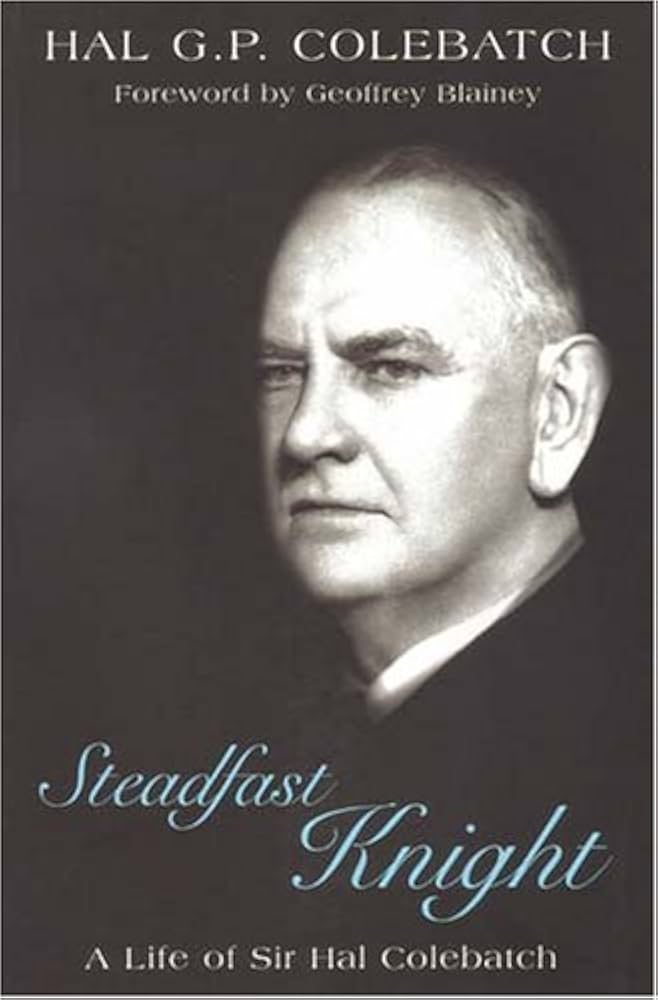
- Free Article: No
- Contents Category: Australian History
- Review Article: Yes
- Article Title: Another country
- Online Only: No
- Custom Highlight Text:
‘If goods cannot cross frontiers, armies will.’ This prescient remark was made by the Western Australian politician Sir Hal Colebatch, well before the German and Japanese armies started their march in 1936. In a federation not lacking in strong state politicians – Thomas Playford, Henry Bolte, Don Dunstan, Joh Bjelke-Petersen, Charles Court and Jeff Kennett come to mind for the twentieth century – Colebatch (1872–1953) stands out by virtue of his interests and priorities. He is a reminder (and the eastern states often need reminding) that Western Australia has been from the start, and remains to some degree, another country.
- Book 1 Title: Steadfast Knight
- Book 1 Subtitle: A life of Sir Hal Colebatch
- Book 1 Biblio: FACP, $27.95pb, 320pp, 192073 139 3
- Book 1 Cover Small (400 x 600):

- Book 1 Cover (800 x 1200):

Colebatch’s interests were far broader than those of a narrow liberal of the Manchester school. National defence was a preoccupation. As early as the 1920s he was urging the Australian government to contribute to the construction of Singapore’s defences. (They refused.) In the 1930s he recognised early the military consequences of protectionism, and opposed appeasement and pacificism. Two stints as agent-general of Western Australia in London (1923–27, 1933–39) gave him a world view of international affairs that few state or federal politicians acquired; he met Mussolini and Goebbels and watched with dismay as both sides of politics in the democracies failed to respond to Germany’s rearmament. The author usefully brings together the hours lost in both wars by union strikes, at a time when their countrymen were dying abroad or rotting in POW camps.
Colebatch’s political career, although unusually varied, was limited by his rejection of party discipline, which he judged as a curb on the freedom a democratic representative ought to enjoy. This left him isolated during his years in the Senate (1928–33), where he opposed the growing centralism of Canberra – his stance an indication of the distance already apparent between the leaders of the eastern seaboard and the rest of Australia (now grown into a gulf, as confirmed by the last three general elections).
His was a hard upbringing: poverty as a child; leaving school at the age of eleven; working on a succession of newspapers in South Australia and Broken Hill; a harsh life on the Coolgardie goldfields. All this against the background of drought, fire and disease (especially typhoid), interspersed with the hectic periods of gold rushes. Along the way, Colebatch managed to acquire an education befitting a mind gifted enough to win him the chess championship of Western Australia.
By 1904 he was able to borrow enough money to buy the Northam Advertiser. It was at Northam that he met James Mitchell, the future premier, and encouraged him to enter politics. So began a long association with Mitchell. During Colebatch’s first term in the Legislative Council (1912–23), he found himself the only minister in the chamber and therefore responsible for managing all the government’s bills. There he acquired his reputation as a fine speaker, but the workload broke his health, and it was eventually found that he had diabetes. Colebatch was one of the early beneficiaries of the discovery of insulin.
His brief term as premier of Western Australia (April–May 1919) was marked by violent rivalries on the Fremantle docks between the two lumpers’ organisations, the Union and the National. During the encounters, the premier narrowly escaped death when stone and scrap iron were dropped onto Colebatch’s launch. In one of the major brawls, a Union lumper later died of his injuries. Union apologists and left-wing historians made the most of the event, so it is good to read a broader account of this complicated issue.
Colebatch and Mitchell, each dominating his respective chamber, worked well in tandem, and the former was able to launch his scheme to establish high schools in country districts. Education was a permanent interest of the chess champion who had left school so early. Colebatch died in 1953, a poor but honourable man. Much that he fought for has come to pass; other matters are still to be faced by succeeding generations. This is a timely book.


Comments powered by CComment